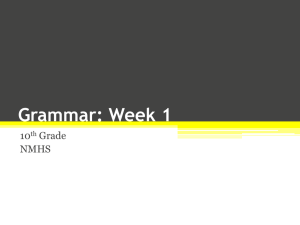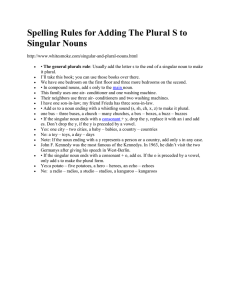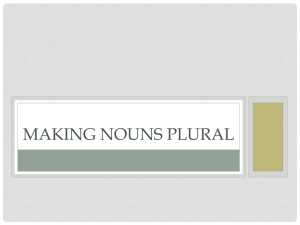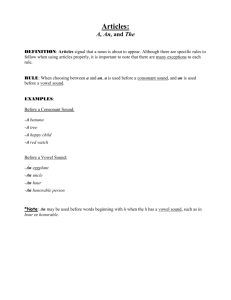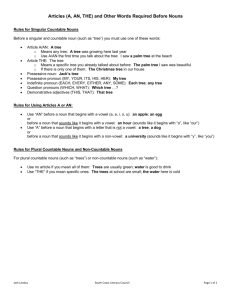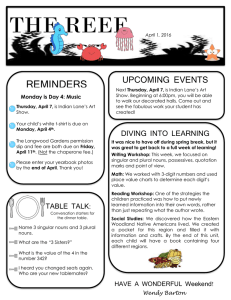Using AN vs. A A Note: an
advertisement
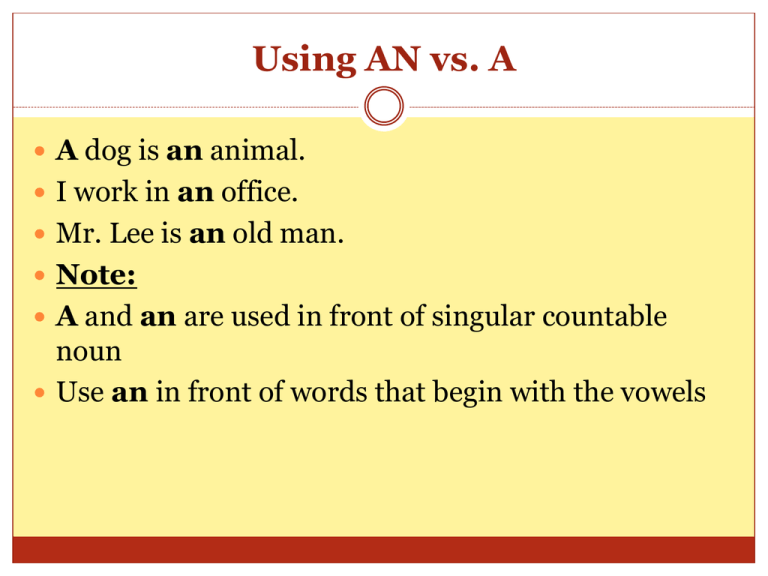
Using AN vs. A A dog is an animal. I work in an office. Mr. Lee is an old man. Note: A and an are used in front of singular countable noun Use an in front of words that begin with the vowels Using AN vs. A I have an uncle. He works at a university. Note: Use an if a word that begins with “u” has a vowel sound. Use a if a word that begins with “u” has a /yu/ sound: a university, a usual events Using An vs. A I need an hour to finish my work. I live in a house. Note: In some words that begin with “h”, the ‘h’ is not pronounced. Instead, the word begins with a vowel sound and an is used: an hour, an honor In most words that begin with “h” , the “h” is pronounced. Use a if the h is pronounced. Using A/AN vs. Some I have a pen. I have some pens. I have some rice. Note: A/An is used in front of singular count nouns. Some is used in front of plural count noun and in front of noncount noun. Measurement With Noncount Nouns I’d like some water. I’d like a glass of water. I’d like a cup of coffee. I’d like a piece of fruit. Note: Units of measure are used with noncount nouns to express a specific quantity. Using Many, Much, A few, A little I don’t get many letters. I don’t get much mail. Ann gets a few letters. Tom gets a little mail. Note: Many is used with PLURAL COUNT noun. Much is used with NONCOUNT count. A few is used with PLURAL COUNT noun. A little is used with NONCOUNT nouns. Using Some and Any (Statement) Alice has some money. (Negative) Alice doesn’t have any money. (Question) Does Alice have any money? (Question) Does Alice have some money? Note: Use some in affirmative statements. Use any in negative statement Use either some or any in a question.
